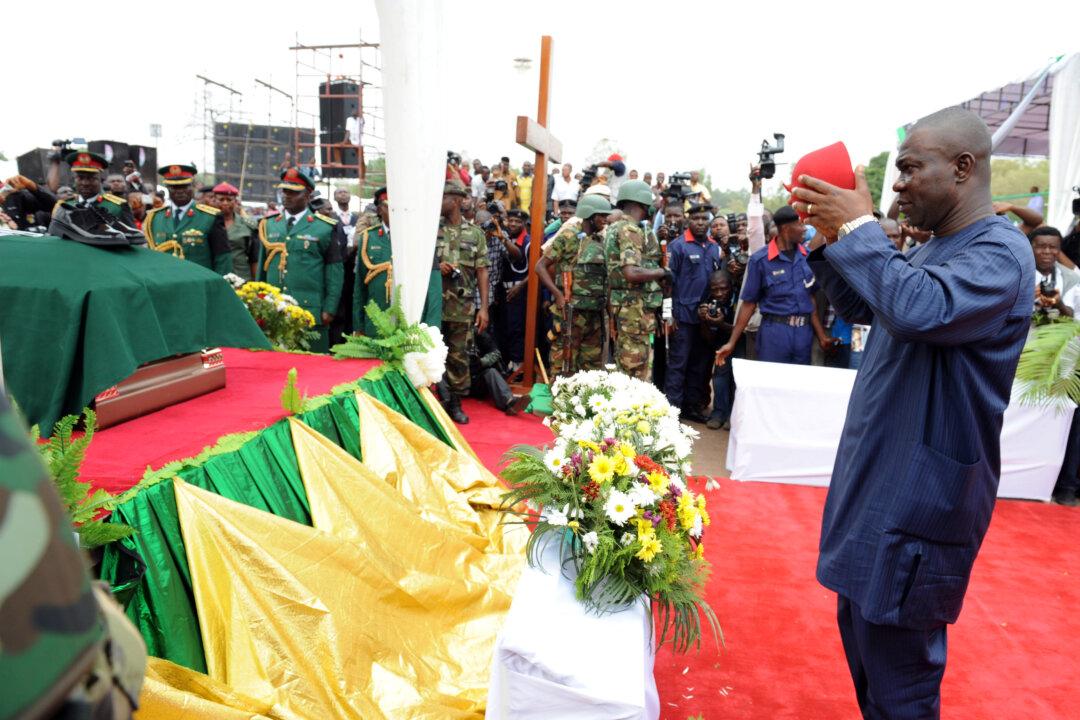LONDON—A young street trader from Lagos who had been offered money to give a kidney to the daughter of a wealthy Nigerian politician fled the home of a facilitator, spent several days homeless in London, and then walked into a police station and told them his story, a trial has heard.
Ike Ekweremadu, 60, his wife Beatrice Nwanneka Ekweremadu, 56, and their daughter Sonia, 25, are on trial at the Old Bailey in central London, along with Obinna Obeta, a doctor. All four deny conspiracy to arrange or facilitate the travel of another person with a view to their exploitation.





